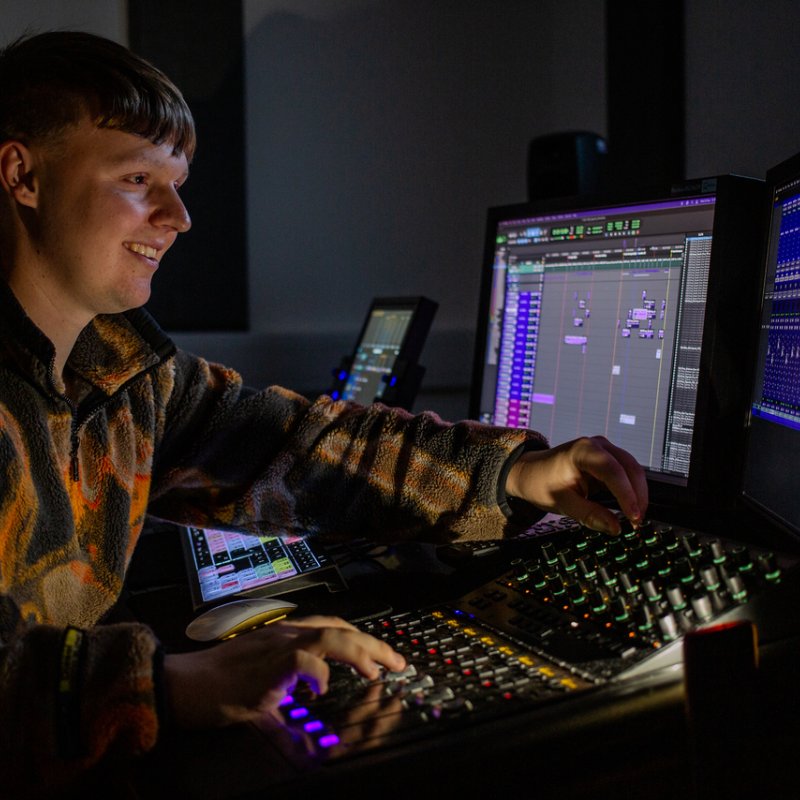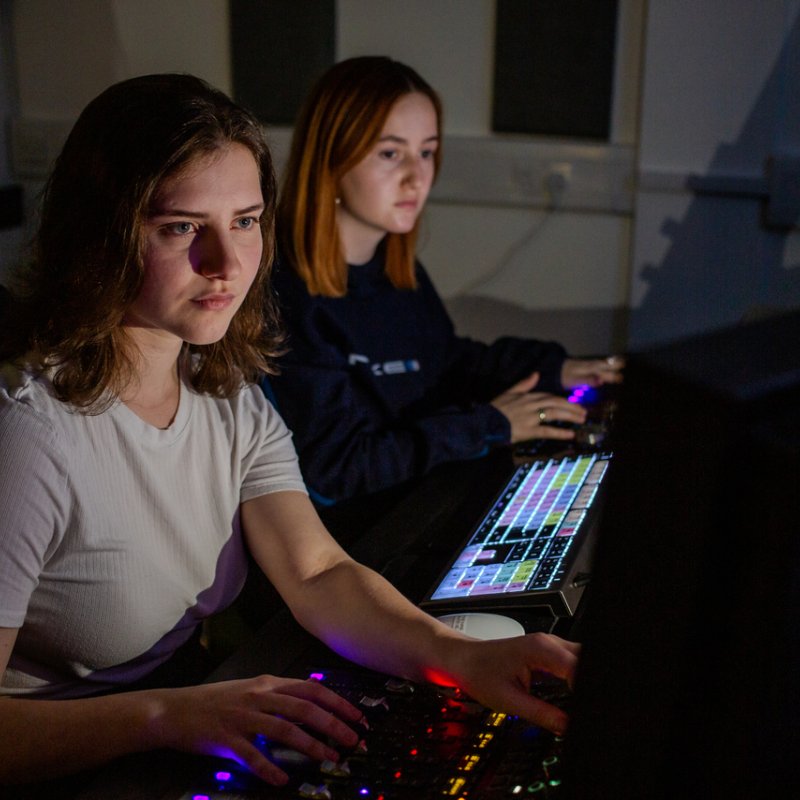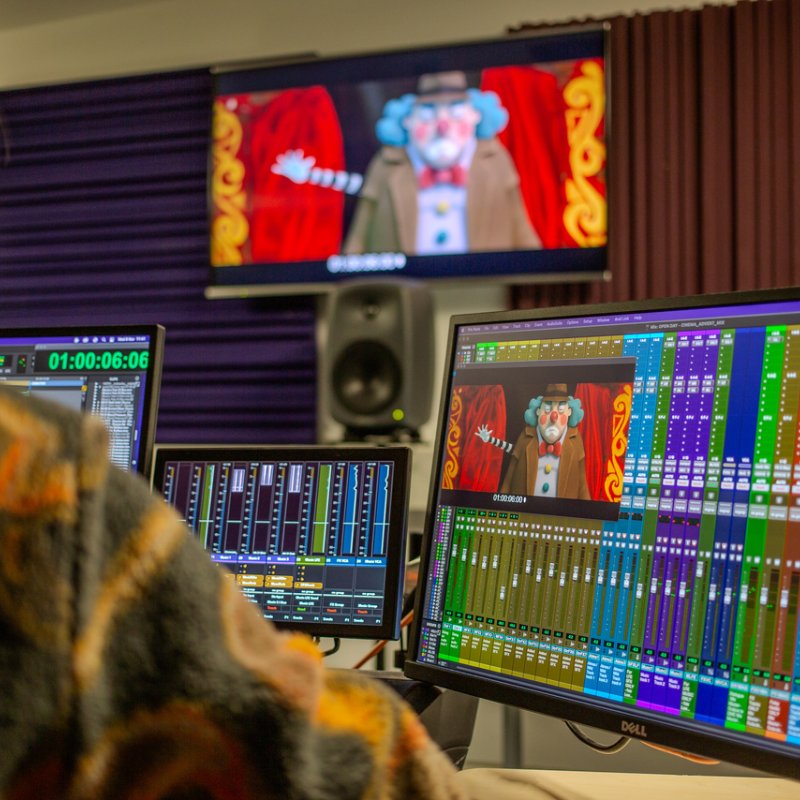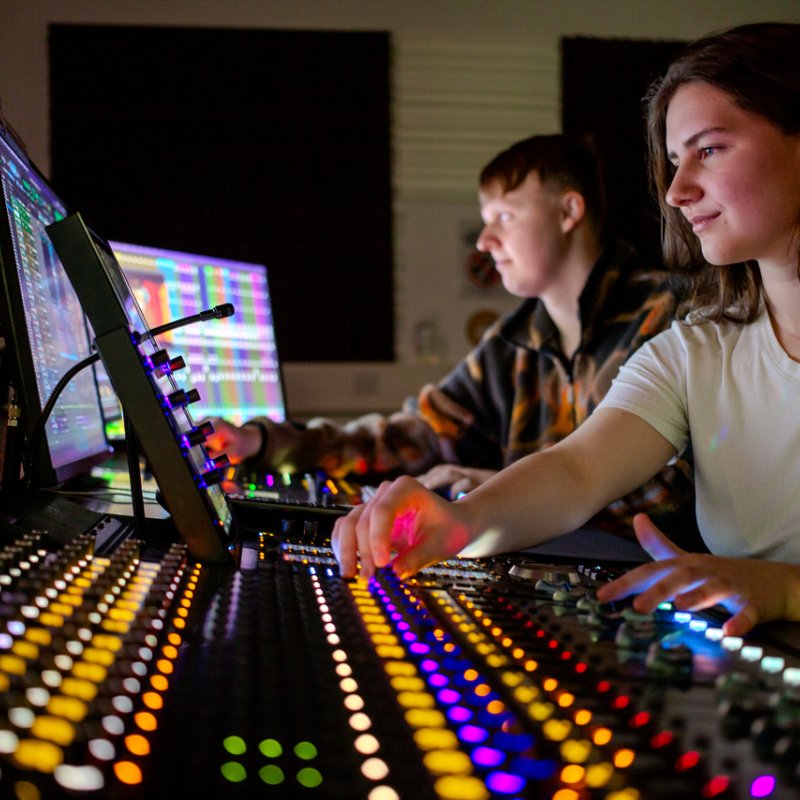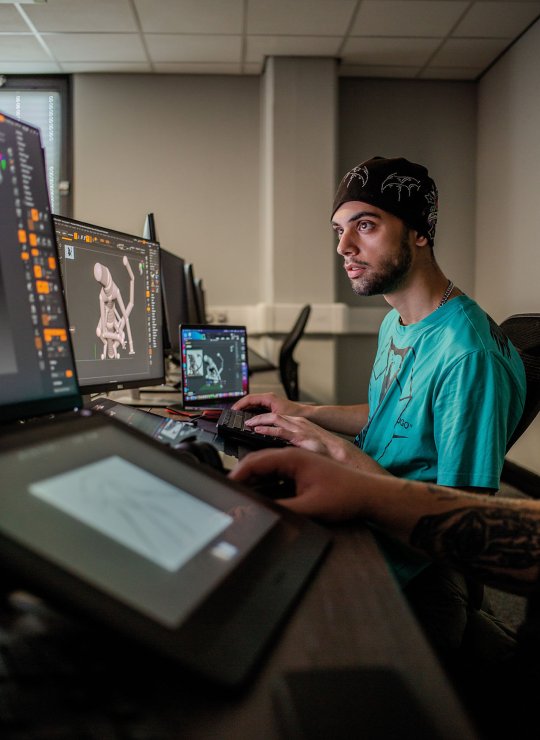
Post Production & Visual Effects BA(Hons)
Create cinematic greatness as a post production and VFX specialist.
Course overview
This is the final frontier in the film-making process, where raw footage is transformed into cohesive, compelling film and visual storytelling is pushed beyond the realms of possibility. This degree covers all aspects of post production and visual effects (VFX) for film, TV and animation, from creating magical sound design to clever scene cutting to ramp up tension. You’ll gain hands-on technical experience in a specialist facility with equipment and workflows that mirror industry practice, developing high-level skills and professionally recognised software qualifications.
You will:
- Refine your skills in areas including picture editing, colour grading, compositing, VFX, rotoscoping, digital imaging, sound design and audio mixing.
- Gain intensive, hands-on technical and craft experience of image and audio post-production equipment, workflows and software.
- Gain recognised industry software certifications as an optional part of the course, giving you the edge over your peers.
- Have the opportunity to participate in live client briefs as well as short and feature films through our Sound/Image Cinema Lab.
- Benefit from our industry links with the likes of Adobe, Avid, Blackmagic Design and Arri, as well as numerous UK-based and international post houses and VFX studios including Framestore, ILM and Envy amongst many others.
You will also engage in our weekly InTo Industry programme of guest speakers and alumni. You’ll learn directly from leading practitioners and connect with our extensive global alumni, helping you to build your network from day one. Recent guests have included Nikki Atkinson (previs/postvis, The Matrix Resurrections, postvis, Rogue One: A Star Wars Story), Mark Connell (Production Designer, Radiohead: Follow Me Around and The Chemical Brothers: We’ve Got To Try) and Graham Wild (Dubbing Mixer, Our Planet, Blue Planet II and Planet Earth II).
This course is accredited by CILECT, Albert, AVID, and ARRI:
Course details
On this Post Production & Visual Effects degree, you'll have the opportunity to gain a BA(Hons) degree over three years or the option to study Post Production & Visual Effects BA(Hons) with an Integrated Foundation Year and/or professional placement options.
You'll develop a strong skills base and a working knowledge of industry practice by responding to an exciting and diverse range of post production and visual effects challenges. With access to professional-standard facilities and software including Avid Media Composer, Pro Tools, Houdini, Maya and Nuke, the chance to collaborate with multi-skilled teams and opportunities to learn from industry leaders, you'll graduate with a diverse portfolio, invaluable connections and the entrepreneurial skills to start making an impact.
In your first year, you’ll strengthen your foundational skills and develop crucial knowledge of industry practice including workflows and current technologies. This will give you the essentials to learn across all three strands: audio, video and VFX, at an equal level. You’ll work in professional-standard facilities and collaborate with your peers on post production and visual effects projects, building your portfolio and developing your technical and creative skills.
Modules
Audio Post-Production Fundamentals
You’ll be introduced to the fundamentals of audio post-production and workflows. You’ll learn how to manipulate sound in both digital and analogue environments using industry-standard software skills.
Exploring the creative aspects of post-production and sound design, you’ll practice recording techniques for dialogue and Foley, while gaining skills in audio editing and mixing. You’ll do this while learning how to integrate software into post-production workflows and have the option to bolster your professional skills by gaining software certifications.
Video Post-Production Fundamentals
You'll learn about the key processes and essential tools used in picture editing. Using industry standard tools such as Avid Media Composer, you’ll gain skills in post production over a series of short intensive projects.
These projects will serve as the start of your portfolio, showcasing your foundational video editing skills while enabling you to cultivate a professional voice and critical thinking approach.
VFX Fundamentals
You’ll expand your understanding of key visual effects (VFX) principles and learn how to use industry-standing computer generated (CG) software applications.
While mastering these essential software skills, you’ll explore areas such as film language and storytelling (storyboarding, blocking shots), previsualisation (previs), VFX pipelines and the basic principles of practical filmmaking and VFX.
Audio Post-Production Competency
You’ll further develop your software skills and continue to build confidence in using industry-standard tools for audio post-production. You'll deepen your understanding and proficiency in working with audio hardware, audio suits and mixing desks, and delve further into the creative side of sound design.
Video Post-Production Competency
You'll develop your editing skills further through Avid Media Composer 110 and delve deeper into the tools and platforms used within post-production, applying these in a creative video post-production project.
VFX Competency
You’ll expand your knowledge of VFX techniques, learning how to combine computer generated (CG) assets with live-action plates to create captivating and lifelike environments. Through hands-on practice, you’ll enhance your software-based knowledge and skills, exploring techniques like rotoscoping and 3D & 2D tracking. You’ll developed a deeper understanding of VXF principles and pipelines, equipping you with the expertise to creatively apply these concepts and overcome challenges in VFX shots.
Your second year is designed to give you greater confidence in your skills and a clearer understanding of your own interests. You'll continue your development on the three core areas of audio, picture and VFX, but also be given that crucial space to refine your own specialist interests. This may be as a specialist editor, sound mixer, VFX supervisor, colourist, sound designer or compositor, among the many other roles open to you. By exploring and collaborating on challenging projects you’ll get to connect with peers from the School of Film & Television, across the wider University and beyond.
Modules
Audio Post-Production Proficiency
You’ll dive into more advanced techniques of audio post-production using industry-standard software, methods, shortcuts and workflows. You’ll attend technical workshops that will take you beyond the basics of using the software, gaining a deep understanding not only of the user interface but also the backend of the software and its operation, learning how to troubleshoot and apply your skills effectively.
You’ll spend more time in front of the mixing desk as you learn various mixing techniques on different hardware. This will broaden your knowledge and help you mix confidently in a dubbing theatre environment.
Motion Graphics & Colour Proficiency
In this module you’ll move from competent to professional in your video editing abilities.
You will gain greater confidence and proficiency with the tools and techniques employed in a professional video post-production workflow. You will move beyond the ‘edit’ to graphic enhancements, colour grading and finishing.
VFX Proficiency
Building on your skills, you’ll tackle more advanced processes, with an emphasis on generating computer graphics with a view to implementing them in live action footage.
You’ll apply what you’ve learned as a VFX artist by working on a short intensive project developing a portfolio around a singular shot or shots and creating supporting materials where necessary.
Collaboration
Within this module you'll get the opportunity to collaborate with peers from across the School of Film & Television and beyond to meet a project challenge by your developing specialist skills. This is your chance to shine as a specialist within your chosen area.
Intermediate Post-Production & VFX Project
In this module you’ll get the chance to put your expertise to the test on a post production and VFX project.
You’ll have the opportunity to delve deeper into the three strands of the course: audio, video post-production or visual effects and examine the multitude of roles and responsibilities across them. You’ll be able to define the scope of your project and produce documentation.
You can choose to take an optional professional placement after your second year on a three-year programme, or after your third year if you’re studying for a degree with an Integrated Foundation Year.
You’ll be responsible for finding your own placement, with support from the Employability team.
Choosing this option will enhance your industry experience and skills while studying.
How you’ll study during your professional placement
You’ll spend time working in a professional context, as part of a business or organisation. This can be in one role, or up to three, and must be for a minimum of 24 weeks.
You’ll develop in-demand workplace skills, deepen your insight into industry and grow your network of contacts, all of which could help you get ahead in your career after graduation.
Throughout this year, you’ll develop a portfolio of work that includes critical self-reflection on what has been learned from the experience. You’ll be required to evidence your experiences, the skills you’ve learned and your professional growth.
Your final year of the degree will be dedicated to refining and mastering your skills as you prepare for a career in industry. You'll cement your learning across your chosen pathway of audio post-production, video post-production or visual effects. You'll have the opportunity to take on a collaborative or entrepreneurial project with peers from across the University, especially in animation, film, television, prosthetic effects, games or on one of the School of Film & Television's funded micro-budget films. You'll also work on an advanced post-production or visual effects project.
Modules
Pre-Production & Development
In this module you’ll be immersed in pre-production and project development practice.
You’ll create an ambitious, innovative and complex project that could form the basis of your Final Major Project. Your ways of working will reflect professional creative industry processes, contexts and culture.
Extended Research Project
This module will give you the opportunity to choose a project in your specialism and run with it. You’ll develop a high level of in-depth subject knowledge making you an expert within your chosen field of Post-Production and Visual Effects.
Futures
Focusing on your professional future, this module will give you the skills you need to transition from university to industry. With input from our employability team and your supervisor, you’ll build your professional profile to enable you to stand out from the crowd on graduating.
Final Major Project
Launching you into the professional world, your Final Major Project allows you to build out a complex project to completion.
Following the industry workflows and processes you’ve learned throughout your degree, you’ll take charge of your creative direction and produce work you’re not only proud of, but which will contribute to your professional portfolio.
Why study an Integrated Foundation Year route?
If you’re taking on a new subject that you haven’t studied in depth before, have been out of education for a while or have a non-standard educational background then an Integrated Foundation Year degree may be the right choice for you. It is a four-year degree with an Integrated Foundation Year to start, which allows you to explore the primary elements of your subject before progressing on to the remaining three years of the BA(Hons) degree.
What you'll study in your Foundation year
If you choose this pathway, you'll study five core modules in your Foundation year. These are all designed to help you explore the foundational elements of your subject. You'll gain relevant technical skills, learn to experiment and take risks, develop an understanding of professional practice, have opportunities to work across disciplines and collaborate with other students on live project briefs.
Modules
Explore
You'll begin your foundation year by working collaboratively with others to explore themes of the future. You'll take risks, experiment through play and be supported to break through barriers.
Technique
You'll take subject-specific workshops and develop essential technical and practical skills in your area of study. You'll also enhance your analytical and organisational abilities.
Apply
You'll work with your peer group to think beyond discipline by addressing a societal or global issue. You'll then showcase your work to your peers and deliver and accompanying evaluation of your process.
Industry
You'll enhance your creative and practical skills in your subject specialism by responding to typical industry briefs, underpinned by focused research and experiments. You'll also gain industry insights through guest lectures and workshops.
Launch
You'll develop your unique identity in your specialism through the production of a self-initiated body of work. Your final project will be the bridge to your next year, fully supported by evaluative reviews and critical analysis of the work you have created.
After the Foundation year, you progress into Year One of the full three-year degree, equipped with a deeper knowledge of your subject, a clear understanding of your strengths, and develop a practical and technical skillset and the confidence to excel in your chosen subject.
If you apply for and enrol onto a degree with an Integrated Foundation Year, you’ll have the option to switch onto a five-year version including a placement year. That means you’ll complete the first three years of your course before completing a placement in industry in your fourth year and returning to Falmouth for the fifth year of your programme.
As part of our process of continuous improvement, we routinely review course content to ensure that all our students benefit from a high-quality and rewarding academic experience. As such, there may be some changes made to your course which are not immediately reflected in the content displayed on our website. Any students affected will be informed of any changes made directly.
From module information to course aims and assessment criteria, discover the full course details:

How you'll learn & be assessed
This practice-based degree is underpinned by creative, technical and critical tuition, designed to reflect and meet the demands of today's post production and visual effects industries. Through the first half of the course, you will gain a firm foundation across the three core disciplines – audio, picture and VFX. For the second half of your studies, you will have the opportunity to focus in and specialise. The Post Production & Visual Effects course is delivered through lectures, seminars, workshops, panel discussions, masterclasses and individual tutorials.
Teaching will be complemented by our visiting lecturer programme and opportunities for work experience and internships over the duration of your degree. Learning within an inclusive and supportive environment, you’ll graduate with a varied portfolio of technical and creative work.
At Falmouth, we use a 'digitally enhanced learning & teaching' approach. Your experience will always be predominantly in-person, including seminars, tutorials and studio teaching, with some, more targeted elements, being online either live (synchronous) or pre-recorded (asynchronous). You can read more here.
100% of your assessment will be coursework and presentations. There are no formal exams on this course.
Assessment methods
The BA Post Production & Visual Effects degree employs two main coursework assessment strategies over the year:
- Portfolios – these bodies of works will be comprised from weekly skills development tasks to major projects, depending on what you are studying in each module
- Presentations – some of the more advanced modules in this degree course require presentations of research and development, such as the Extended Research Project module
Your final assessments occur at the end of each module, usually at the end of a study block. You'll also benefit from interim formative assessments partway through modules.
These assessments help ensure that you remain on track with your work. You'll receive feedback on all your work throughout the year. It will be delivered in tutorials and studio-based workshops. At the end of a module, you'll be given detailed written feedback on your work and the opportunity to meet with your assessor to gain further clarity.
If you choose the Integrated Foundation Year pathway for this course, all assessments within your Foundation Year will be 100% coursework based.
Facilities
The industry-standard School of Film & Television offers a dedicated technical team and professional facilities including:
- 129-seat cinema, with Christie M Series 2.5k projection and 7.2 surround sound
- Five large production studios, including a dedicated green screen studio, a multipurpose/multi-cam studio equipped with three Sony HXC-FB80 studio cameras and integral live gallery, including 4-input Tricaster Ultra HD production system
- Specialist green screen studio with infinity cove & 360-degree subject lighting rig. Access to Xsens motion capture kit and VR/AR/MR equipment
- Nine iMac Pro edit suites with Avid Media Composer and Pro Tools, Adobe Creative Cloud Suite and Da Vinci Resolve
- Two specialist grading suites featuring DaVinci Resolve and 4K preview screens
- Two 28-seat ‘Post Hubs’ for post-production software training, equipped with dual screen Apple iMacs.
- Avid NEXIS shared storage system for seamless access and integration of projects
- 25-seat dubbing theatre with Avid S6 mixing desk and Pro Tools Ultimate
- Foley/ADR suite with access to a wide range of mics, foley traps and props. As well as four further post-production audio suites, all equipped with Pro Tools Ultimate, with industry standard mixing desks
- Two 28-seat post production hubs
- Digital cameras (HD to 5K) including Arri Alexa, RED Gemini, Sony FX6, Canon C500 and XF305, and Arri SR3 and Bolex 16mm film cameras, plus Odyssey 7Q+ External Recorders
- Wide range of hot and cold (LED) lighting equipment including systems by Arri, Dedo & Kino Flo alongside traditional blondes and red heads
- Grip and gimbal systems available include DJI Ronin Gimbal systems, Wally Dolly, Indie Dolly, PD1 Dolly, Ronford Baker Sliders, Libec and Camcrane Jibs
- Audio equipment includes Sound Devices 633 mixers, recorders and an extensive range of microphones
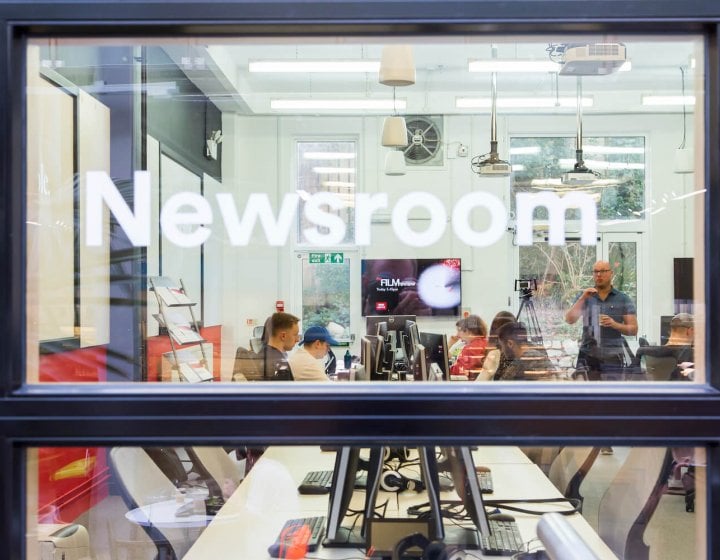
Media Equipment and Facilities
Our industry-level facilities offer everything you need to practice and produce animation, film, TV,...
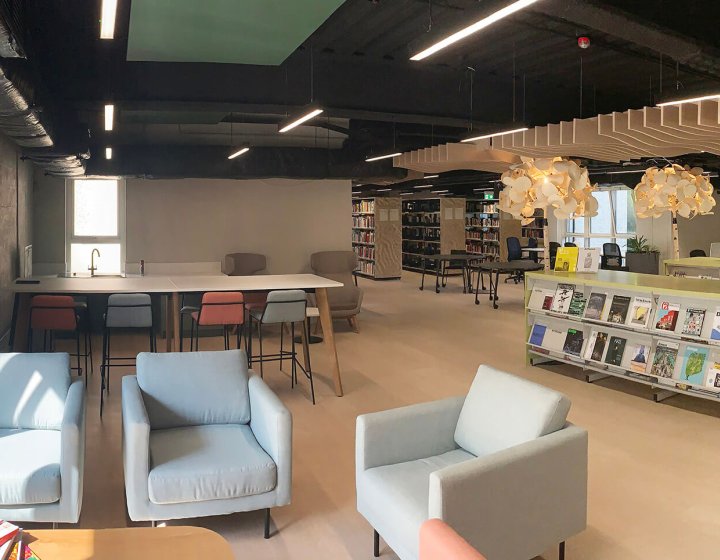
Library Facilities
Offering extensive collections, our two libraries provide a wealth of digital resources, magazines, ...

Sports Centre
Our Sports Centre, on Penryn Campus, includes a spacious gym with up to 90 of the latest, new statio...
Stories from our community
Explore student projects, graduate successes, staff news and industry insights
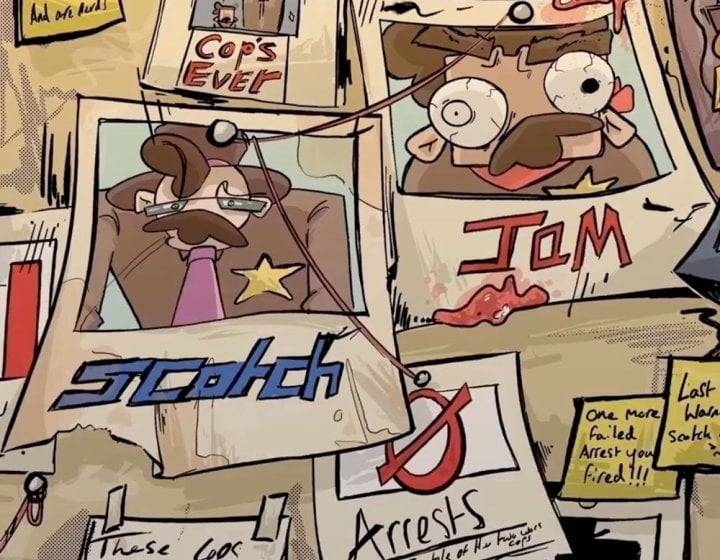
Animation students scoop RTS award
15 April 2025
When second-year Animation BA(Hons) students Faith Evans and Dylan Pierce first came up with the ide...
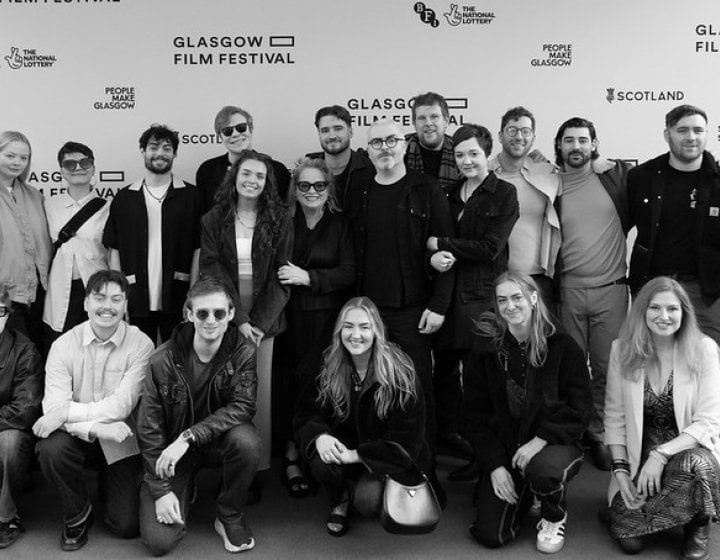
‘The Birdwatcher’ premieres at UK’s leading horror film festival
21 March 2025
Students from across Falmouth’s School of Film & Television, Fashion & Textiles Institute, and Gam...
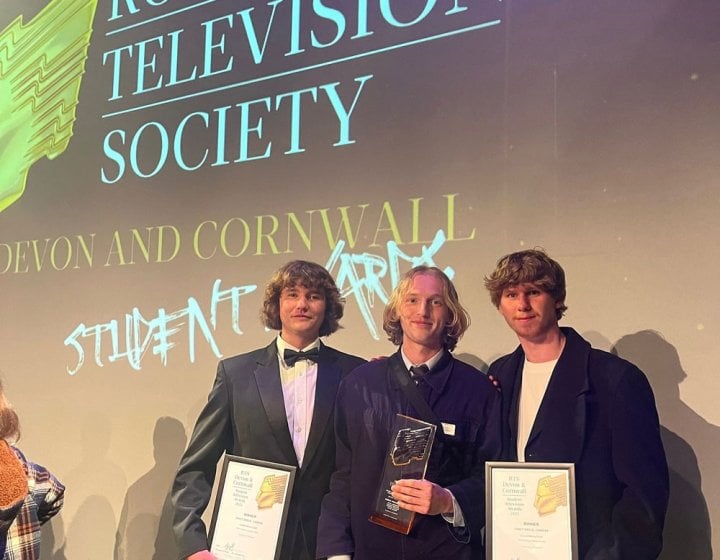
Graduate's seaweed plastic documentary wins more recognition at Royal Television Society Awards
21 March 2025
Television & Film Production BA(Hons) graduate Olaf Lawrence’s documentary about seaweed plastics ...
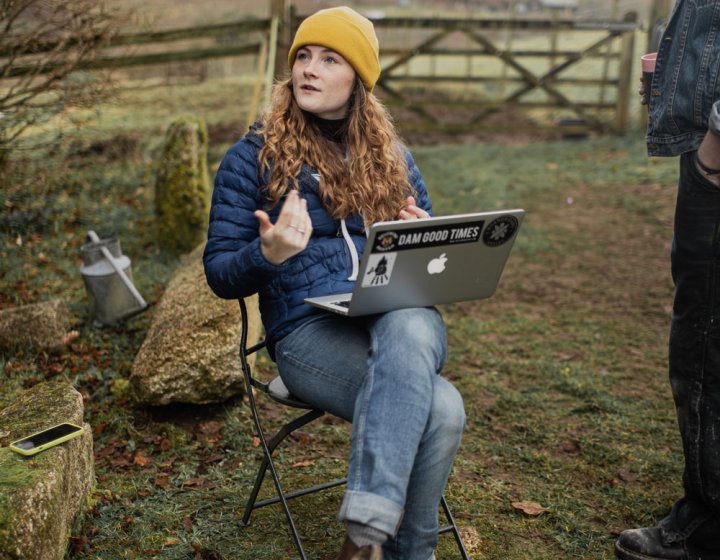
Film graduate Rachel Clear Burton on working as a production coordinator
03 March 2025
Rachel Clear Burton has enjoyed a series of exciting achievements, including the success of her fina...
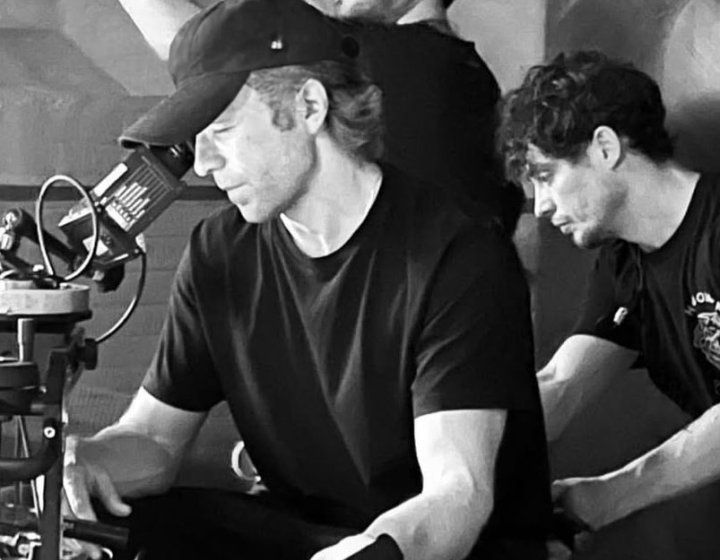
Graduate cinematographer Bryan Gavigan on his BAFTA Cymru win
13 January 2025
Film graduate Bryan Gavigan scooped a BAFTA Cymru award for his work on the crime drama Passenger. B...
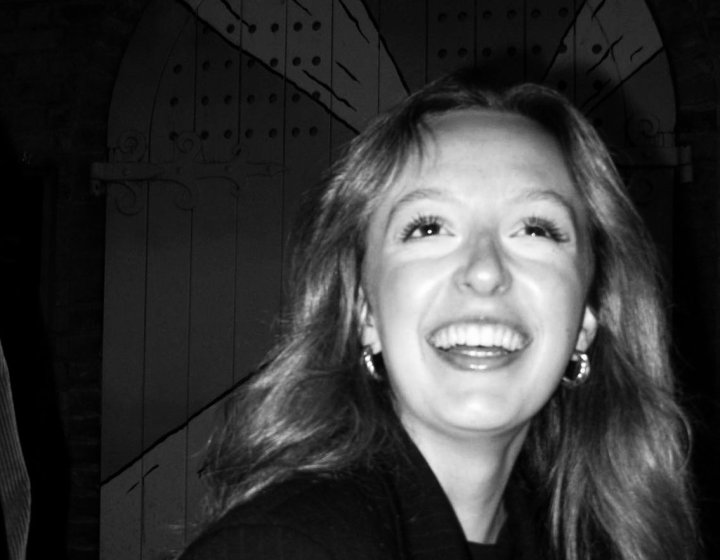
Film graduate brings Grenfell stories to life
20 December 2024
Film BA(Hons) graduate Lydia Knights has produced a compelling documentary film for the community fo...
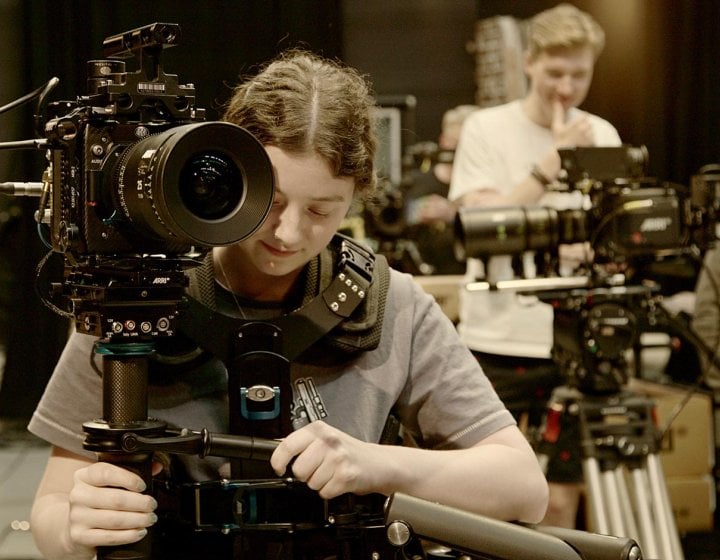
From script to screen: How to develop your film idea
25 November 2024
Get an insight into how the film production process works - from developing your initial idea to cra...

Work by Nathan Bedford
A guide to Worldbuilding
31 October 2024
Worldbuilding shapes the sights, sounds, and experiences that draw audiences into a new universe. Bu...

DEATH x DESIGN x CULTURE: Falmouth hosts conference exploring design’s role in death
30 October 2024
2024 welcomed the inaugural DEATHxDESIGNxCULTURE conference to Falmouth.
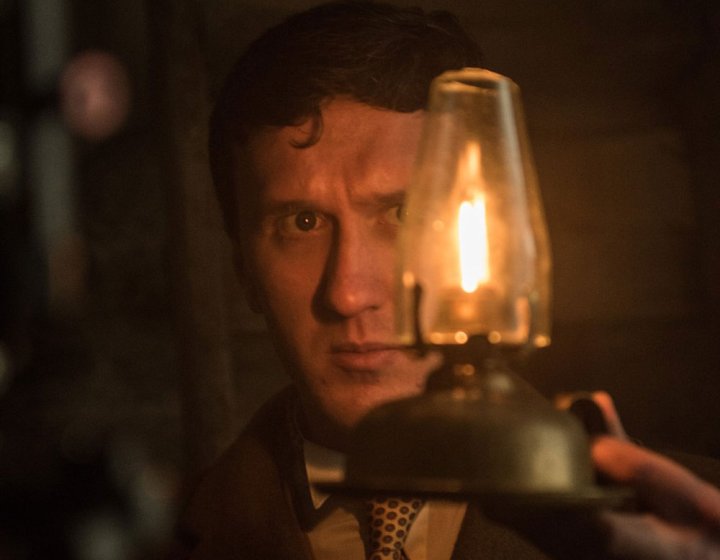
Dr Kingsley Marshall’s top horror films of the year, and of all time
29 October 2024
The Head of the School of Film & Television talks through his top horror picks for your viewing plea...
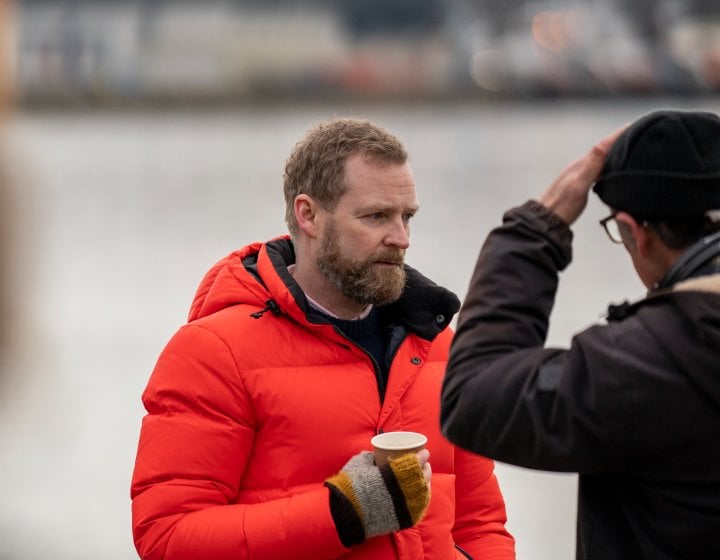
Dr Kingsley Marshall on what makes a good horror movie
22 October 2024
I’ve always been drawn to horror; the 1970s ‘Giallo’ movies from the Italian director Dario Ar...

Why Mums Don't Jump: the student animated film breaking health taboos
18 October 2024
The animated short film Why Mums Don’t Jump (2023) made by students at Falmouth University h...

Where Memory Flows: BA Film’s Dr Struan Gray Conducts Research on Rivers as Spaces of Memory in Chile
03 October 2024
Dr Struan Gray, Senior Lecturer on BA Film, has recently returned from a research trip to Chile and ...

The Severed Sun set for world premiere at Fantastic Fest
19 September 2024
The Severed Sun, the debut feature film from director and Falmouth University lecturer, Dean Puckett...

A new life awaits: my personal journey to AI | Dr Kingsley Marshall
18 September 2024
For so much of my life artificial intelligence has only ever been a feature of science fiction: ofte...

More Rookies recognition for animation alumni
30 August 2024
Graduate Gihan Fernando has received some of the highest accolades at the Rookie Awards 2024.
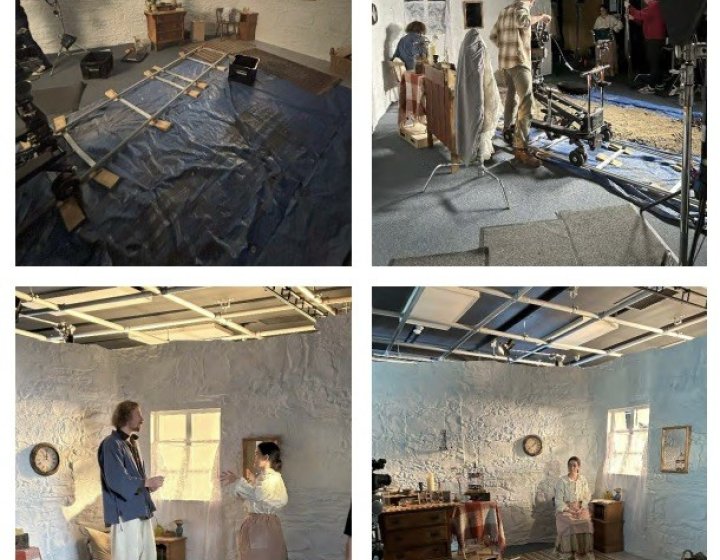
Film & TV master’s students on their placement at Verve Media
09 August 2024
Four students on the Film & Television MA course completed a week’s placement at Verve Media earli...
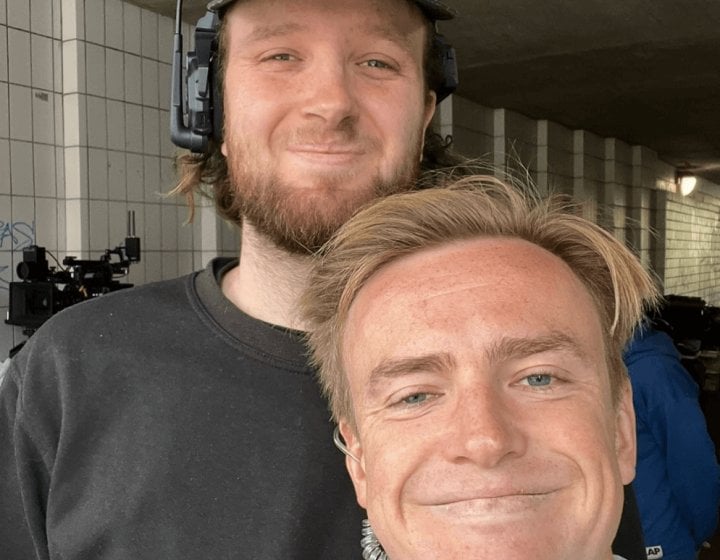
Falmouth grads meet on set of Netflix’s The Devil’s Star
22 July 2024
Two Film BA graduates - who didn’t know each other during their studies - have started working tog...
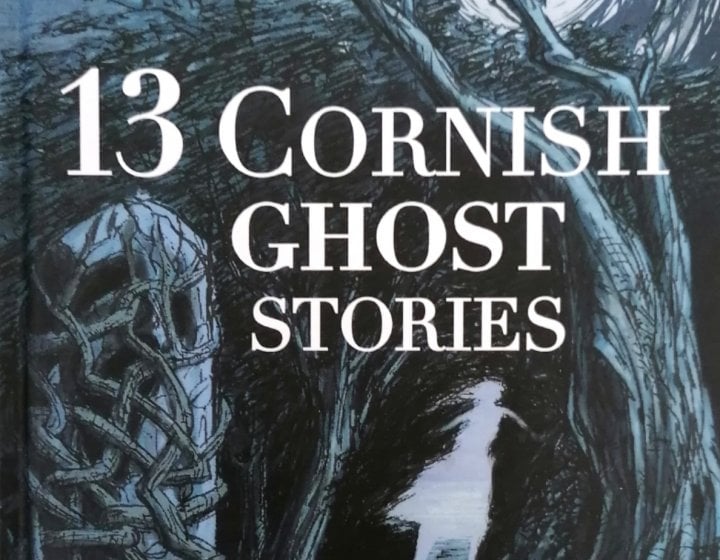
'13 Cornish Ghost Stories': new anthology published by three senior lecturers
05 July 2024
'13 Cornish Ghost Stories', a chilling anthology of new Cornish ghost stories hit the shelves on 20 ...
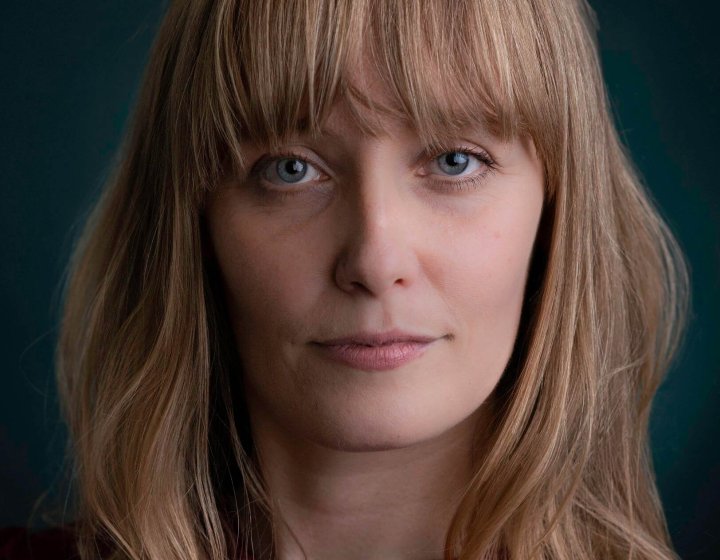
Image credit: Duncan Guymer
Susan Lay’s journey from MA to filmmaking in Cornwall
04 July 2024
Susan Lay studied MA Film & Television, graduating in 2019, and has since gone on to write, produce,...
Staff
Our staff includes academic and technical tutors with extensive industrial experience in post production and visual effects. This experience combines games, feature films, commercials and TV.
You'll also interact with the School of Film & Television's writers, academics, directors, producers, cinematographers, editors, screenwriters, script editors, sound designers, branded content producers and art directors.
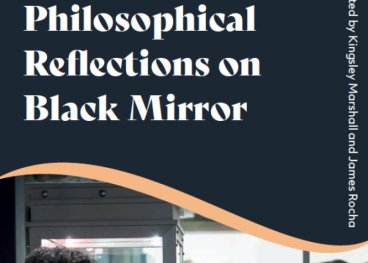
Dr Kingsley Marshall
Head of Film & Television
Dr Kingsley Marshall is Head of the CILECT and ScreenSkills accredited School of Film and Television...

Richard Butler
Lecturer, Post-Production and VFX
After graduating from Nottingham Trent University in 1998 with and HND in Electrical and Electronic ...

Julian Wright
Lecturer, Post-Production and VFX
From a young age Julian has had a fascination with the creation of imagery, be it stills, sculpture,...

Jared Embley
Senior Lecturer, Post-Production and VFX
I am a Visual Effects artist with over 15 years of professional experience spread throughout the wor...
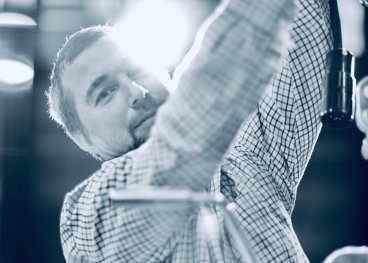
Laurie Bowles
Senior Technician of Camera & Lighting
Laurie comes from the film making world with an extensive array of practical skills and industry exp...

Peter Felstead
Senior Technician
I joined the University in 1991 when I moved to Cornwall. My first role was to run the photography s...
Some members of staff only teach on specific modules, and your course might not feature every staff member who teaches on the course.

Got a question about this course? Ask our course team now.
Chat to us'I regularly find graduates who have used the [Falmouth] VFX course to springboard themselves into worldwide VFX and animation companies and productions.'
- Matt Tinsley, Post-Vis & VFX Supervisor, Jurassic World: Fallen Kingdom, Mary Poppins Returns, Sherlock Holmes: A Game of Shadows and Spectre
Careers
When you graduate you could forge a career in a variety of post production and visual effects roles, including post production supervisors, VFX producers, editors, colourists, MCR operators, post production sound assistants, data wranglers, Roto artists and technical directors within this developing sector.
Our graduates have worked as:
- Broadcasters including BBC, Channel 4, Channel 5, HBO, ITV and Netflix
- VFX companies including Framestore, ILM, MPC, Pixomondo, Milk VFX, The Mill and Weta Digital
- Centroid, FirstLook TV, Oakwood and WING London
- Camera departments for shows on Discovery Channel
- Film and TV credits of our alumni include: Deadpool 3, House of the Dragon, the Star Wars franchise, Enys Men, Deadpool, Blade Runner 2049, Alice Through the Looking Glass, Belle, the Mission: Impossible and Bond franchises, Peterloo, Broadchurch, The Apprentice, Squid Game, and The Great British Bake Off
Recognition for our graduates:
Our graduates’ work has been featured at BAFTA, BIFA and Academy Award qualifying festivals, secured development from the BFI and BAFTA, and been published in titles including Total Film, The Telegraph, The Guardian and Little White Lies.
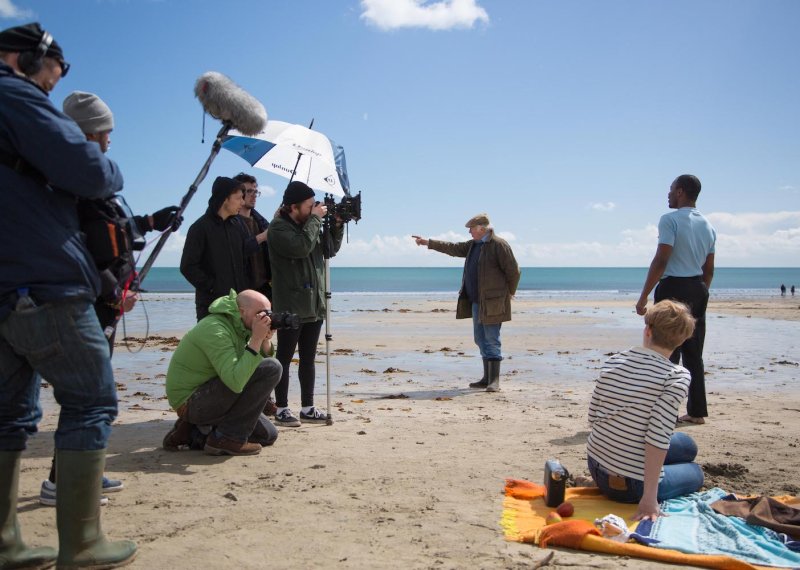
With British TV and film production at an all-time high, there has never been a better time to enter this industry.
How to apply
Ready to apply for 2025?
You can apply for our undergraduate degrees via UCAS. You'll need our university UCAS code (F33) as well as your course code (which you'll find on your course page) for your application.
| Course route | UCAS code |
|---|---|
| Post Production & Visual Effects BA(Hons) three year degree | W614 |
| Post Production & Visual Effects BA(Hons) with Integrated Foundation Year | FY25 |
| Post Production & Visual Effects BA(Hons) with professional placement | PY55 |

Application advice & interview information
Go to ToolkitFor starting your studies in 2025
UK applications: 29 January 2025 (for equal consideration)
Applications after the 29 January will be considered on a first-come, first-served as long as there are places available. Apply for this course now.
International fee payers
International fee payers can apply throughout the year. But we recommend applying as early as possible, to make time for visa and travel arrangements.
We consider all applications on their own individual merit and potential. We invite all applicants to an interview day or audition to give them the opportunity to demonstrate this along with what inspires and motivates them in their field. Applicants will also be able to show their portfolio or give a performance depending on the course. We welcome applications from all subject backgrounds, whether you’ve specialised in STEM, the arts or humanities.
Course routes & entry requirements
BA/BSc(Hons) three year degree: 104 – 120 UCAS Tariff points
BA/BSc(Hons) four year degree with professional placement: 104 – 120 UCAS Tariff points
BA/BSc(Hons) four year degree with Integrated Foundation Year: 80 – 120 UCAS Tariff points
Check the title of your course to see if it's a BA or BSc award. UCAS Tariff points will primarily be from Level 3 qualifications such as but not limited to A-levels, T Levels, a BTEC/UAL Extended Diploma or a Foundation Diploma.
For applicants whose first language is English we require you to have or be working towards GCSE English Language Grade 4 (C), or equivalent.
If English is not your first language you will need to meet the same standard which is equivalent to the IELTS Academic 6.0 overall score, with at least 5.5 in Reading, Writing, Speaking and Listening. We accept a range of in country equivalencies and approved tests.
If you need a student visa to study in the UK, you may need to take a recognised language test. You can read our English Language Requirements for more information.
Fees, costs & funding
Tuition fees
| Annual tuition fee | Student |
|---|---|
| £9,535 per year | Full-time UK |
| £17,950 per year | Full-time EU/international |
| £1,905 per professional placement year | Full-time UK and EU/international |
| £9,535 per Integrated Foundation Year | Full-time UK |
| £17,950 per Integrated Foundation Year | Full-time EU/international |
| Annual tuition fee | Student |
|---|---|
| £9,250 per year | Full-time UK |
| £17,950 per year | Full-time EU/international |
| £1,850 per professional placement year | Full-time UK and EU/international |
| £9,250 per Integrated Foundation Year | Full-time UK |
| £17,950 per Integrated Foundation Year | Full-time EU/international |
Tuition fees for September 2026 will be confirmed in summer 2025.
Tuition fees are set annually and are subject to review each year. The University may therefore raise tuition fees in the second or subsequent years of a course, in line with inflation and/or the maximum permitted by law or Government policy. Students will be notified of any changes as soon as possible.
The figures above don't include accommodation and living costs
Typical course costs
- £100 - Recommended reading
- Access to your own laptop is beneficial, but not essential, you will have access to our IT suites and software
- If you want to invest in your own headphones (you can loan them from our stores), ideally go for closed back headphones with a good frequency range, for example AKG, K72, K92, Sennheiser HD280 Pro or Beyerdynamic DT770 Pro
Optional study trips
- £600 – FMX Stuttgart (annual, optional trip)
- £250 – London VFX Festival & Escape Studios Visit (annual, optional trip)
If you need to bring equipment or materials with you, these will be outlined in your Welcome Letter.
Additional typical course costs for Integrated Foundation Year pathway
- £250 for materials
- A laptop/desktop computer
- Adobe Creative Suite
To engage in the digital learning activity, although you will be able to access IT suites on campus, you will benefit from a laptop to access the platforms and tools we use. Depending on your subject, you may need a specific type of computer. If you're unsure about what you might need, please contact our course advisors.
Funding
For information about funding available, please visit our student funding pages.
Ask a student
What better way to find out about life at Falmouth University than by asking our current students?
From course details and academic support, to the social scene and settling in, our students are ready and available to answer any questions you might have. Simply set up your account, send them a question and they'll get back to you within 24 hours.
Similar courses
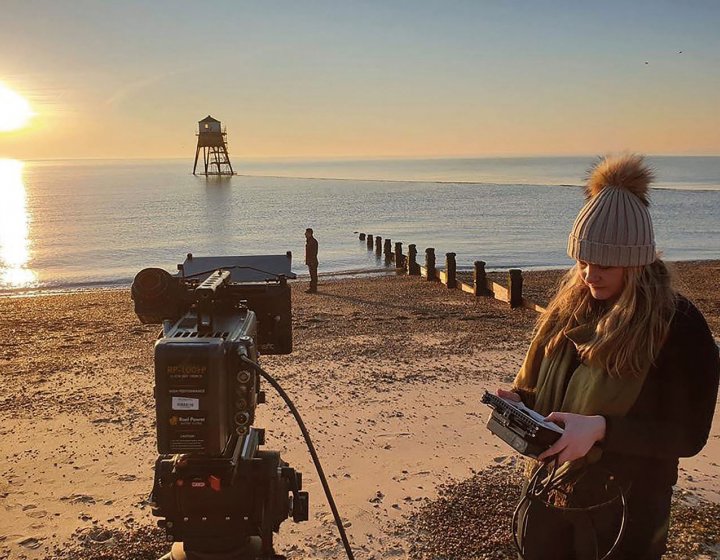
Television & Film Production BA(Hons)
Discover how to create everything from high-end dramas with full scale crews through to fast moving ...
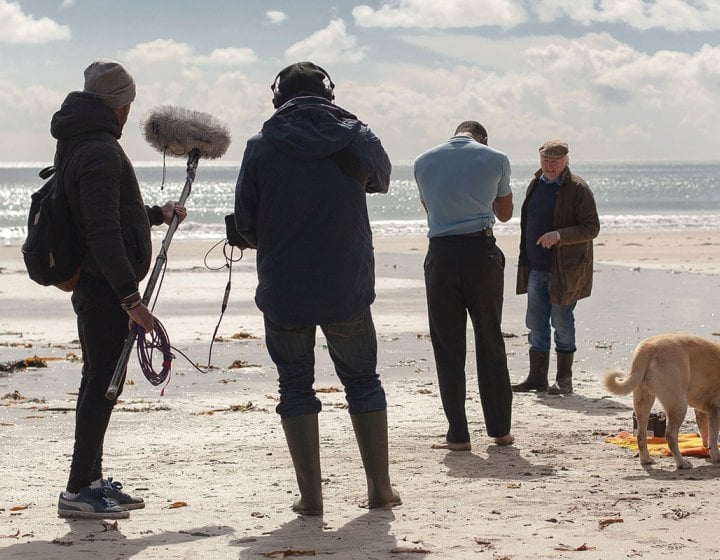
Film BA(Hons)
Develop your filmmaking abilities, honing your practice and deepening your understanding of cinema. ...

Animation BA(Hons)
Bring your ideas to life through the world of animation. We’ll support you in developing original,...
Open Days and events
From visiting campus to online application advice, get all the information you need about joining our creative community.
Find an event
